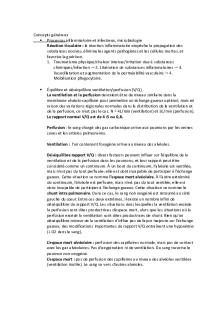Stethoscope App PDF

| Title | Stethoscope App |
|---|---|
| Author | Vetri Maduraiveeran |
| Course | Journalism Seminar |
| Institution | University of Georgia |
| Pages | 2 |
| File Size | 45.4 KB |
| File Type | |
| Total Downloads | 1 |
| Total Views | 133 |
Summary
Stethoscope Application...
Description
Vetri Maduraiveeran The COVID-19 crisis is an incredible testimony to the double-edged nature of the internet. All the information in the world is at our fingertips, yet a sizable portion of it is misleading, whether as a result of ignorance or more malicious deliberation. Advertisements plague every application we open, and even seemingly “scientific articles” can be nothing more than ploys to sell products or push opinions. Medicine is an especially important field to discuss with regard to this issue, as consequences that affect an individual’s health can be a matter of life and death. The ability to instantly access virtually unlimited medical resources and cutting-edge research through the internet may at first seem a miraculous boon to healthcare, but there are significant issues that must be addressed. These concerns have been highlighted during this recent pandemic, an era when medicine has taken the national spotlight and providing swift and quality care is more critical than ever. Real time communication and online sources of medical knowledge (Medscape.com, Mayo Clinic, etc.) are certainly boons to the healthcare industry, allowing physicians to communicate with one another in real time and ushering in unprecedented levels of patient ownership in their health issues. According to the CDC, during the last week of March 2020, telehealth visits increased by 154% . The rise of telehealth and other virtual services have minimized exposure between healthcare providers and potentially infected people, and they have lightened the burden on already taxed medical facilities. Even before the pandemic, telehealth services were increasing in popularity due to a variety of factors like comfort of patients with chronic illnesses, and sometimes they even allowed for better diagnoses by allowing doctors to assess patients within their own homes. The accessibility of the internet as a crowd-sourced platform lends itself to diversity of content and speed of information dissemination. However, one notable point must be made: only a very, very small portion of this material is necessarily true. A platform where this breach of integrity becomes increasingly evident is social media. The same algorithms that allow corporations like Facebook and Google to tailor content to its users contribute to the creation of “echo chambers” that enclose users in a continuous feedback loop of information. Especially in terms of medicine, this can create a rabbit hole of misinformation that results in groups like the “Anti-Vax Movement”, and more recently, pushback against the nation’s efforts to control COVID-19 cases through masks and social distancing . These bubbles push an ‘us vs. them’ narrative, hindering efforts by the medical community to reach already isolated demographics. Experts in the national spotlight, like Dr. Faucci, faced harassment from both politicians and the public for daring to lug empirical evidence into the public arena. The Internet may seem like an intangible complex with unlimited amounts of information to consume. However, we must realize that at its core, the Internet is nothing more than a database to compile information. It is a tool built by humans, and therefore suffers from the same imperfections that plagues ourselves: shortsightedness and greed. It is time to bring real science back into the spotlight. 1
2...
Similar Free PDFs

Stethoscope App
- 2 Pages

APP #1 - app
- 12 Pages

APP 4 M Denis Drouin - APP
- 11 Pages

Askep APP
- 25 Pages

LP APP
- 1 Pages

App Infiltrat
- 34 Pages

PENGGANTIAN APP
- 2 Pages

APP 4 M Denis Drouin - app
- 11 Pages

APP Ch.6 Outline
- 4 Pages

APP Ch.7 Outline
- 4 Pages

Otis App Disclaimers 121620
- 12 Pages

Relazione app inventor
- 4 Pages

Contrato DE Desarrollo APP
- 4 Pages

App #3 - Mme Martin
- 20 Pages

Capitulo2 150819223405 lva1 app
- 91 Pages

SGCertified Platform App Builder
- 14 Pages
Popular Institutions
- Tinajero National High School - Annex
- Politeknik Caltex Riau
- Yokohama City University
- SGT University
- University of Al-Qadisiyah
- Divine Word College of Vigan
- Techniek College Rotterdam
- Universidade de Santiago
- Universiti Teknologi MARA Cawangan Johor Kampus Pasir Gudang
- Poltekkes Kemenkes Yogyakarta
- Baguio City National High School
- Colegio san marcos
- preparatoria uno
- Centro de Bachillerato Tecnológico Industrial y de Servicios No. 107
- Dalian Maritime University
- Quang Trung Secondary School
- Colegio Tecnológico en Informática
- Corporación Regional de Educación Superior
- Grupo CEDVA
- Dar Al Uloom University
- Centro de Estudios Preuniversitarios de la Universidad Nacional de Ingeniería
- 上智大学
- Aakash International School, Nuna Majara
- San Felipe Neri Catholic School
- Kang Chiao International School - New Taipei City
- Misamis Occidental National High School
- Institución Educativa Escuela Normal Juan Ladrilleros
- Kolehiyo ng Pantukan
- Batanes State College
- Instituto Continental
- Sekolah Menengah Kejuruan Kesehatan Kaltara (Tarakan)
- Colegio de La Inmaculada Concepcion - Cebu